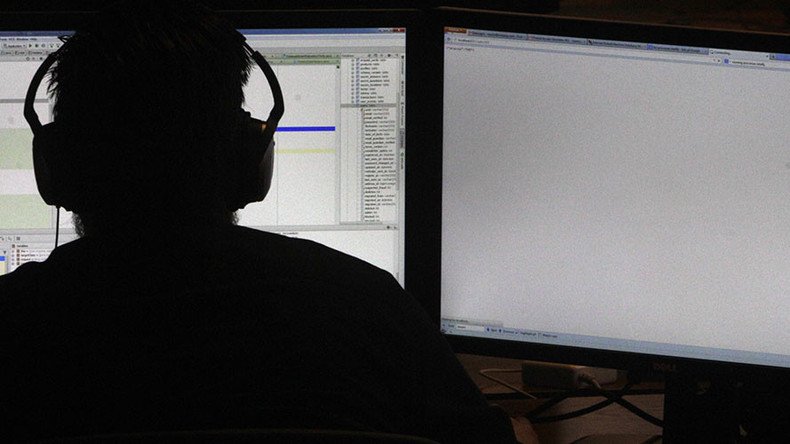NSA is everywhere: New Zealand peace activist victim of ‘illegal’ PRISM snooping program

A new report by The Intercept and Television New Zealand reveal the National Security Agency (NSA) worked with New Zealand’s government to illegally spy on one of its citizens in a failed terrorism investigation.
A group of “democracy and freedom” activists were thought to be plotting the overthrow of Fiji’s military regime in 2012, according to the Kiwi snoops at the Security Intelligence Service (SIS).
With help from the NSA via the Five Eyes alliance, which Edward Snowden called a “supra-national intelligence organization that doesn’t answer to the laws of its own countries,” they staged a covert operation to catch the alleged terrorist group.
The world's first confirmed, publicly-ID'd victim of NSA's #PRISM: a pro-democracy activist. https://t.co/C7GPiojhHTpic.twitter.com/GDvTDhyBHg
— Edward Snowden (@Snowden) August 15, 2016
Snowden’s leaked documents show the NSA intercepted Facebook communications and emails between associates of the Fiji Democracy and Freedom Movement campaign, using the PRISM surveillance system, before passing the information onto New Zealand on the other side of the globe. More than 190 pages of documents between May and August 2012 reveal the scale of the NSA’s spying.
SIS and New Zealand’s NSA equivalent, the Government Communications Security Bureau (GCSB), spied on “pro-democracy” activist Tony Fullman and his associates in full disregard for the illegality of doing so.
The former public servant’s passport was revoked, his home was raided, and he was placed on the NSA’s surveillance list.
This just says it all, doesn't it:
— Nikki Prewitt (@shammyshrugged) July 7, 2016
Obama on NSA surveillance: Can't have 100% security and 100% privacy https://t.co/DL1VGvkxI4
Fullman opposed Fiji’s authoritarian ruler Frank Bainimarama, just as New Zealand’s government did. The nation had been subjected to three military coups since 1987, the last of which occurred in 2006 and saw Bainimarama gain power, and subsequently crack down on critics and free speech.
Fullman was born in Fiji and has lived in New Zealand since he was 21, becoming a citizen and working for Inland Revenue for 24 years, and earned two master's degrees, TVNZ reports.
When offered a chief executive position at Fiji’s Water Authority in 2009, Fullman moved back to the islands.
This is an important read. #NSAsurveillance has real world impact on innocent people. #Section702#PRISM need reform https://t.co/W0RV9xx97a
— Robyn Greene (@Robyn_Greene) August 15, 2016
In Fiji, Fullman was in touch with a childhood friend Ratu Tevita Mara, chief of staff of the Fijian army. Mara found himself at odds with Bainimarama and was accused of planning to overthrow the government and charged for saying, “this government is f*ck all.”
He was released on bail and decided to flee to Tonga. After his departure, Fullman was questioned because he had spoken to Mara a number of times before he left.
Fullman, fearing for his own safety, also left Fiji. He moved to Australia in 2012, where he started working for the Fiji Movement for Freedom and Democracy. He and Mara attended meetings in Auckland in July, which likely caught the attention of New Zealand’s intelligence agencies. The group was under investigation after bugged calls suggested there was a plan to violently oust Bainimarama.
REAL people are the targets of #JTRIG, #PRISM, & numerous other programs. These are not intellectual exercises. They're active operations.
— Kitty Hundal (@kittyhundal) August 15, 2016
A government source speaking under anonymity told The Intercept that the Kiwi intelligence were “very excited” that they “finally had some baddies, real live terrorists in New Zealand.”
Fullman’s house was raided by Australian police and agents who seized his computers, phones and took his passport, which was canceled by New Zealand the same day.
New Zealand authorities raided his former home in Wellington and those of three Freedom and Democracy members at the same time. Prime minister John Key signed off on the warrants.
Four days after the raids, New Zealand’s foreign minister Murray Mc Cully went to Fiji for trade talks. Fullman believes the raids were an effort to show Fiji that New Zealand was on its side, allowing for a more favorable outcome to the talks.
Powerful cyclone ravages #Fiji looming Zika & Dengue threats (PHOTOS, VIDEO) https://t.co/N4yGaoCmsEpic.twitter.com/DfoyoJfYUJ
— RT (@RT_com) February 23, 2016
Following the 2006 coup, relations between Fiji and New Zealand had cooled, after New Zealand placed sanctions on Fiji and called for democracy. By 2012, the government discussed lifting sanctions, in part because of fears that the smaller nation was forging ties with China.
After the raids, Fullman was placed under the watchful eye of the NSA, with much of the spying carried out using “US-984XN,” the code name for PRISM surveillance which allows the NSA to access past and present communications made through Google, Apple, Facebook, Microsoft, and other technology companies.
Fullman is the first named person to have been subjected to PRISM’s capabilities.
His bank statements were accessed through his emails, allowing the spy networks to gain an understanding of his movements.
#NSA leaks show worries over intelligence gaps, training tips for media leaks https://t.co/iMzswIjZyR
— RT (@RT_com) August 11, 2016
The surveillance revealed no evidence of a terror plot. Fullman’s passport was reinstated in April 2013, two months after he brought legal action against the government and in the same week that the report on unlawful spying by GCSB by Rebecca Ketteridge was released. The report revealed 88 New Zealanders had been illegally spied on by the government between 2003 and 2012.
Fullman says he still gets questioned at airport security and has difficulty with employment following the negative press surrounding his alleged terrorist leanings.
The Intercept sought comment from the NSA and SIS. NSA wouldn’t speak of the case, and Antony Byers, a spokesperson for New Zealand’s intelligence said, “We do not ask partners to do things that would circumvent the law. And New Zealand gets significant value from our international relationships.”












